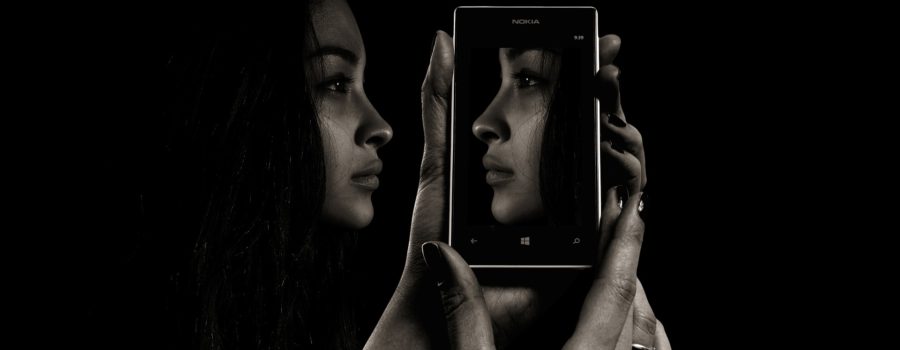I believe it was Jaron Lanier who said (somewhere in “You Are Not A Gadget“) that there are two kinds of people in the world: hypocrites, and people who admit they’re hypocrites.
I’m a hypocrite, working in a field that is rife with hypocrisy. To be kind, perhaps it is better to say that practices that should be common in the field of librarianship are not as common as I’d like.
Some examples:
- Librarians advocate for open access publishing, but most library and information science (LIS) journals are not open access.
- Librarians say they advocate for open access, but publish in paywalled journals more often than open access ones (note, ironically, that the article I just linked is located behind a paywall).
- Libraries advocate for universal access to information, but the University of Toronto won’t let me into their stacks without at least a $20 stack access pass, and despite ongoing pressure the Millenium Library in Winnipeg still uses airport-style security at the front door.
- Libraries advocate for personal privacy but typically do not enforce this ethic when dealing with third-party services like Hoopla and OverDrive. At my university there are many librarians who passionately defend Mendeley as a citation manager (due to its admittedly-strong user experience) without acknowledging that the tool is owned by the world’s largest for-profit publisher, that the publisher has been the subject of at least one major data breach this year, and that your use of the “free” software is governed by an overly-invasive privacy policy and questionable data collection practices.
- The American Library Association publishes terrific professional development guides and service handbooks, and NONE of them — not even guides for students of the profession — are available under open content licenses.
Yeah, hypocrisy is everywhere… so perhaps I shouldn’t feel terrible about my own?
Then again, I am now a Digital Scholarship Librarian(TM), advocating for and building Digital Scholarship Supports(TM) for the benefit of Digital Scholars (or, as they are also known, “scholars”… but that’s another post). The definition of digital scholarship is vague but the values that underpin it are not: collaboration, co-creation, transparency, openness, inclusivity, equity, access to information, sustainability, preservation, public scholarship, community engagement, and probably one or two others I’m forgetting at the moment.
Some aspects of “living” the values of digital scholarship are easier: I can openly-license my thesis, or ensure I put Creative Commons licenses on educational materials or presentations I create. Others are more difficult. For example, while I have managed to get open access copies of my publications into free repositories, two of them are ultimately in paywalled journals (because unpublished scholars can’t be picky, and because I couldn’t cover the Article Processing Charge (APC) to make them free.)
When I took this librarian post, I promised I’d advocate for digital scholarship by modeling things that are enabled by digital methods and tools. In terms of my own scholarship, this means many things, including the ones I’ve already mentioned… but for the purposes of today’s Personal Hypocrisy Admission, it’s about making work-in-progress visible to the public and open to participation and feedback from anyone.
In Kathleen Fitzpatrick’s inspirational and aspirational book, Generous Thinking, she not only advocates for a renewed relationship between universities, seekers, scholars, and communities, but she modeled what’s possible in the world of open scholarship by writing the book using an open review process, accepting and celebrating comments and feedback received on drafts as she was composing them. What a gift! Not only does Dr Fitzpatrick benefit from a kind of “ongoing peer review,” but the draft book is still online, comments and all. I can see who commented on material, follow their contributions, read the discussions, and benefit by getting to know the work of other generous thinkers. The result is a strong, deeply-enriched piece of scholarship that lives and breathes in partnership with its own creation process.
Dr. Fitzpatrick is twenty times the scholar I’ll ever be, but I don’t think the bar she sets is too high.
I recently asked my husband if he’d consider sharing his gritty, warts-and-all work-in-progress online for anyone to see. “Uh, no,” he said, and I don’t begrudge him. Despite his reservations (and mine), I set up a PubPub collection last week to store all the work-in-progress on a campus-wide needs assessment project – including a research proposal that’s roughly half-baked in text and probably only 70-percent-baked in my head.
It is Scary. As. Hell. Because I am not used to working this way; because other scholars are far wiser about this kind of work; and because, dammit, it’s not ready. I was recently emboldened by an experience on the ACRL’s Digital Scholarship Section mailing list, where I posted a public set of summary notes of a literature review (which is also informing the research proposal I’m working on). I was nervous about sharing, but the feedback was excellent: one of the researchers I’d read commented with updated material; a scholar at UVIC provided additional resources; and two other librarians suggested papers I hadn’t yet seen.
Bluntly: how was my work hurt by the decision to share? Not at all. In fact, it’s now better. So this is the new norm for me, and I expect that I’ll use this blog from now on to float tidbits of new work. There are a few things in the pipeline, and I’m excited to get feedback on them. If nobody sees the work or comments on it, I’ll be no worse off than when I drafted things alone, sitting in front of my computer.
I don’t think that a commitment to open review is a requirement of contemporary scholarship but I do think it’s an incredible perk, afforded by technology. One area of hypocrisy down, several hundred to go…
Post image is by Gerd Altmann from Pixabay

